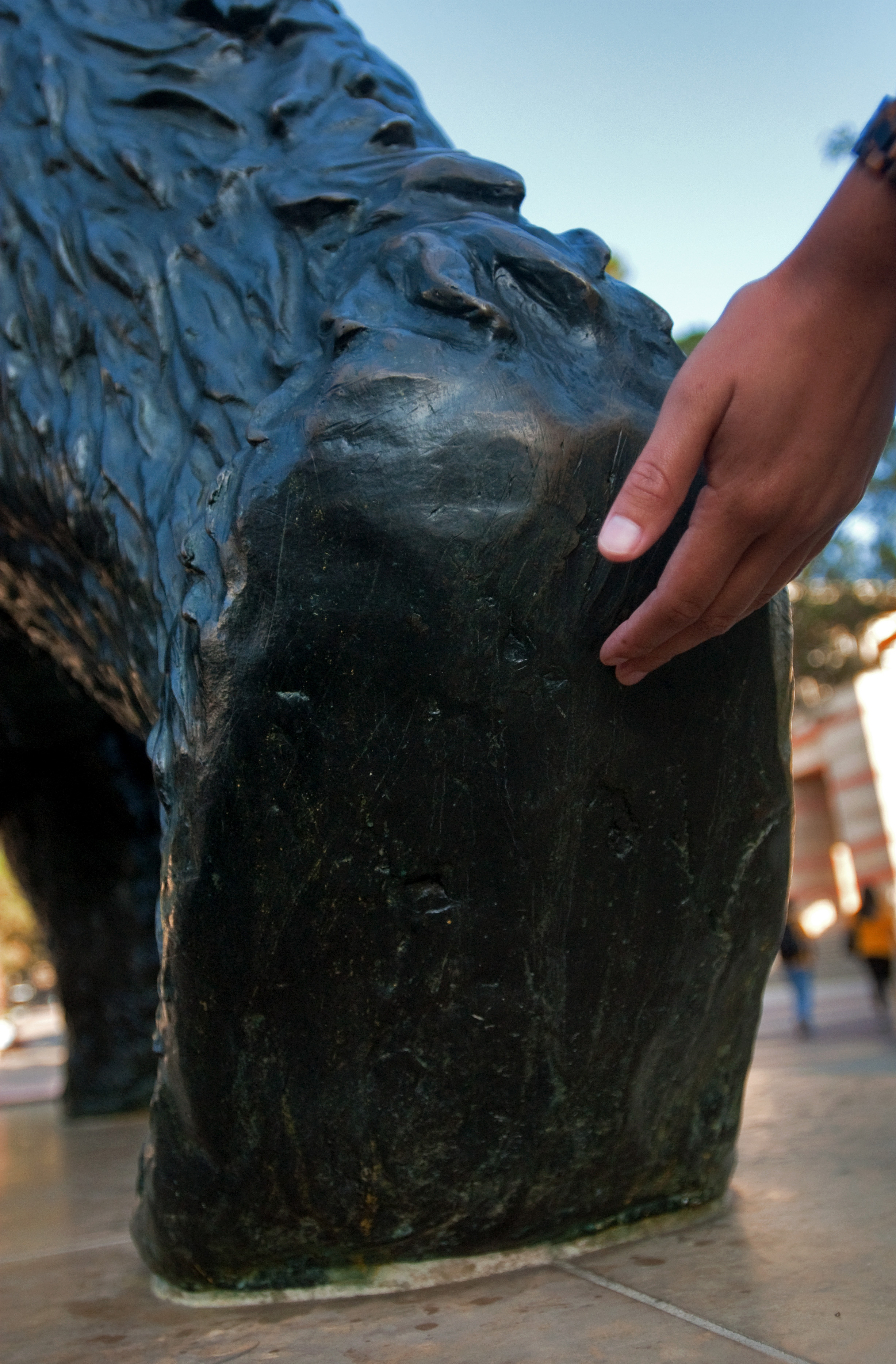Superstition may be the way for UCLA students to ace that exam

Some students believe that the Bruin Bear’s paw can play a hand in their academic success. (Daily Bruin file photo)
By Daily Bruin Staff
Feb. 26, 2016 3:34 p.m.
As we wrap up midterm season and begin to dread finals week, I cannot help but wonder – would I really fail my classes if I touched the Inverted Fountain?
Whether it be rubbing the Bruin Bear’s paw for high test scores, or petting the Powell Library cat to ensure a successful midterm result, superstitious are a significant part of our test-taking mindset. But why exactly do we think this way? Even at an esteemed school like UCLA, it is fascinating how affected we are by superstitions that supposedly determine academic performance.
It’s because the stressful college environment makes students long for some kind of reassurance or emotional support. Following a pre-exam ritual can ease an overwhelmed student’s mind, promoting confidence and stabilizing emotions before a nerve-racking situation. It makes sense that we are motivated to follow superstitions for feelings of safety, or to simply avoid failure.
A 2005 study on this matter showed that among 132 college students, 76.7 percent of them always or sometimes believed in and acted on superstitions. It also explains how a superstition can be deconstructed into three components: affective, cognitive, and behavioral. The affective component includes the emotional processes experienced through superstitious ideas, like anxiety, ecstasy, and interest, while the cognitive component consists of processes of perception and thinking. The behavioral component is the performance of ritual and symbolic acts of superstitions, like praying for an A or placing a curse on a professor. When your feelings, way of thinking and physical action all combine to achieve something like good luck, a superstition is born.
When asked if she follows any pre-exam rituals, Ria Julian, a first-year dance student, said that she used to rub a lucky necklace given to her by her mother before every exam, but it unfortunately broke last quarter.
“I haven’t had any written exams after it broke, but I felt nervous before my dance midterm this quarter without it,” Julian said.
James Lee, a fifth-year economics student, believes that touching the Bruin Bear’s paw before an exam helps him focus during the test.
“I think of it as a small stress-relieving strategy for me, because I know (touching the paw) helps me get good grades,” Lee said.
When I follow my personal pre-exam ritual of wearing my lucky sweatpants and rubbing the Bruin Bear’s paw on my way to an exam location, I feel slightly silly, yet oddly reassured. After all, having a positive mindset going into a test can make all the difference in actual performance. Even though superstitions don’t necessarily increase cognitive abilities, our belief in their efficacy motivates us to perform better academically.
A concept in sociology called the self-fulfilling prophecy, states that when you expect a positive outcome, those expectations are likely to be confirmed. And when I actually do perform well after following the ritual, my belief in its efficacy strengthens. Just like how people tend to buy lottery tickets at the same place as where the last jackpot ticket was sold, superstitions are hard to shake off once they are confirmed.
And to those who ridicule the validity of superstitions – go on, dip your hand into the Inverted Fountain, I dare you.


